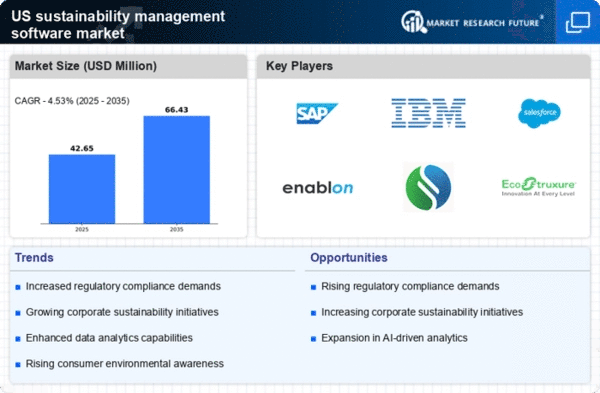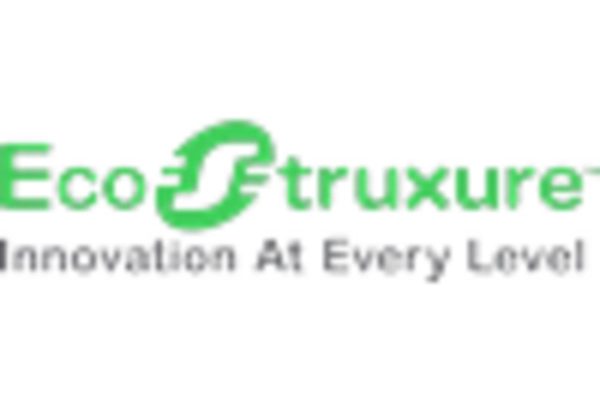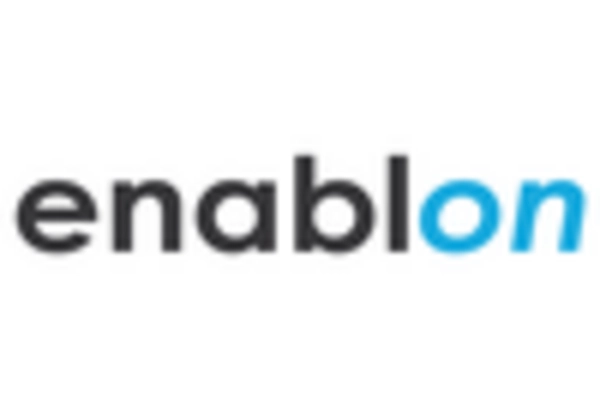Investment in Renewable Energy
Investment in renewable energy sources is significantly influencing the sustainability management-software market. As organizations strive to reduce their carbon footprints, many are transitioning to renewable energy solutions. In the US, investments in renewable energy reached $55 billion in 2024, indicating a robust commitment to sustainable energy practices. This shift necessitates the use of software that can manage energy consumption, track emissions, and optimize resource allocation. Sustainability management software provides the necessary tools for organizations to monitor their renewable energy usage and assess its impact on overall sustainability goals. Consequently, the market for such software is likely to see a surge in demand as more companies prioritize renewable energy integration into their operational frameworks.
Consumer Demand for Transparency
Consumer demand for transparency in corporate sustainability practices is a crucial driver for the sustainability management-software market. As consumers become more informed about environmental issues, they increasingly seek transparency regarding the sustainability efforts of the brands they support. In the US, studies show that 65% of consumers are willing to pay more for products from companies that are transparent about their sustainability practices. This trend compels businesses to adopt software solutions that enable them to disclose their sustainability metrics and progress effectively. By utilizing sustainability management software, companies can streamline their reporting processes and enhance their credibility with consumers. This growing demand for transparency is expected to propel the market forward, as organizations recognize the importance of clear communication regarding their sustainability initiatives.
Corporate Sustainability Initiatives
The increasing emphasis on corporate sustainability initiatives is a primary driver for the sustainability management-software market. Companies are recognizing the need to integrate sustainable practices into their operations to enhance brand reputation and meet stakeholder expectations. In the US, a survey indicated that over 70% of consumers prefer to purchase from brands that demonstrate a commitment to sustainability. This trend compels organizations to adopt software solutions that facilitate the tracking and reporting of sustainability metrics. As a result, the demand for sustainability management software is expected to grow, with projections suggesting a market expansion of approximately 15% annually over the next five years. This growth reflects a broader shift towards responsible business practices, making sustainability management software an essential tool for companies aiming to align with these initiatives.
Government Incentives for Sustainable Practices
Government incentives for sustainable practices are playing a pivotal role in shaping the sustainability management-software market. Various federal and state programs in the US are designed to encourage businesses to adopt sustainable practices through tax credits, grants, and subsidies. These incentives not only reduce the financial burden on companies but also promote the adoption of sustainability management software as a means to comply with regulatory requirements and maximize benefits. For instance, businesses that implement energy-efficient technologies may qualify for substantial tax deductions, thereby motivating them to invest in software that tracks and reports their sustainability efforts. This supportive regulatory environment is likely to drive growth in the sustainability management-software market, as organizations seek to capitalize on available incentives.
Technological Advancements in Software Solutions
Technological advancements in software solutions are driving innovation within the sustainability management-software market. The integration of advanced technologies such as artificial intelligence, machine learning, and big data analytics is enhancing the capabilities of sustainability management software. These technologies allow organizations to analyze vast amounts of data, identify trends, and make informed decisions regarding their sustainability practices. In the US, the adoption of such technologies is projected to increase by 20% over the next few years, as companies seek to leverage data-driven insights for improved sustainability outcomes. This trend indicates a growing recognition of the value of technology in achieving sustainability goals, thereby fueling the demand for sophisticated software solutions in the market.

















